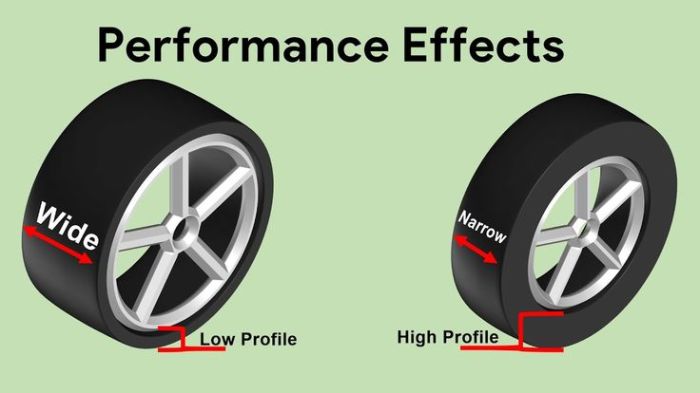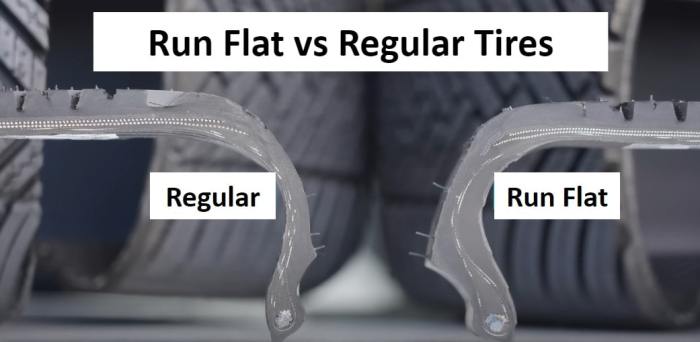Soft tires vs hard tires – In the realm of racing, tires play a pivotal role, and the choice between soft and hard tires is a strategic decision that can significantly impact performance. This article delves into the intricate world of soft tires vs. hard tires, exploring their performance, durability, handling characteristics, and suitability for various conditions.
Soft tires, known for their exceptional grip and cornering abilities, offer drivers a thrilling and responsive driving experience. However, their durability is often compromised, leading to faster wear and a shorter lifespan. Conversely, hard tires prioritize durability and wear resistance, providing consistent performance over longer distances but sacrificing some grip and cornering capabilities.
Soft Tires vs. Hard Tires

Soft tires and hard tires are two distinct types of tires used in motorsports, each with its own unique characteristics and performance capabilities. The choice between soft and hard tires depends on various factors, including track conditions, weather, and race strategy.
Performance Comparison
Soft tires offer superior grip levels and cornering abilities compared to hard tires. This is due to their softer rubber compound, which allows them to deform more easily and conform to the road surface. As a result, soft tires provide greater traction, resulting in faster lap times.
However, the downside of soft tires is that they wear out more quickly than hard tires, especially on abrasive surfaces.Hard tires, on the other hand, have a longer lifespan and are more durable than soft tires. This is because their harder rubber compound is more resistant to wear and tear.
However, the trade-off is that hard tires have lower grip levels and cornering abilities compared to soft tires. This can result in slower lap times, but it can also be an advantage in races where tire wear is a major factor.
Tire Temperature
Tire temperature plays a significant role in tire performance. Soft tires perform best when they are warm, as the heat helps to soften the rubber compound and increase grip levels. Hard tires, on the other hand, are less affected by temperature and can perform well even when they are cold.
Durability and Wear
The hardness of a tire affects its durability and wear resistance. Soft tires are more prone to wear and tear than hard tires, as their softer rubber compound is more easily damaged. This means that soft tires need to be replaced more frequently than hard tires, especially on abrasive surfaces.Hard tires, on the other hand, have a longer lifespan and are more durable than soft tires.
This is because their harder rubber compound is more resistant to wear and tear. Hard tires can last for multiple races, while soft tires may need to be replaced after just a few laps.
Handling Characteristics

Soft tires offer better handling characteristics than hard tires, as they provide greater grip and cornering abilities. This makes them ideal for tracks with high-speed corners and tight chicanes. Soft tires also provide more feedback to the driver, allowing them to feel the limits of the car more easily.Hard tires, on the other hand, have less grip and cornering abilities than soft tires.
This makes them less suitable for tracks with high-speed corners and tight chicanes. However, hard tires provide more stability and traction on low-grip surfaces, such as wet or icy roads.
Steering Response, Soft tires vs hard tires

Soft tires provide better steering response than hard tires, as they allow the car to turn more easily. This makes them ideal for tracks with a lot of corners and tight chicanes. Hard tires, on the other hand, have less steering response than soft tires, as they are more resistant to turning.
This makes them less suitable for tracks with a lot of corners and tight chicanes.
Stability
Hard tires provide more stability than soft tires, as they are less likely to slip or slide. This makes them ideal for tracks with long straightaways and high-speed corners. Soft tires, on the other hand, have less stability than hard tires, as they are more likely to slip or slide.
This makes them less suitable for tracks with long straightaways and high-speed corners.
Traction
Soft tires provide more traction than hard tires, as they have a greater contact patch with the road surface. This makes them ideal for tracks with low-grip surfaces, such as wet or icy roads. Hard tires, on the other hand, have less traction than soft tires, as they have a smaller contact patch with the road surface.
This makes them less suitable for tracks with low-grip surfaces, such as wet or icy roads.
Suitability for Different Conditions: Soft Tires Vs Hard Tires
Soft tires are best suited for tracks with high-speed corners and tight chicanes, as they provide greater grip and cornering abilities. They are also ideal for races where tire wear is not a major factor.Hard tires are best suited for tracks with long straightaways and high-speed corners, as they provide more stability and traction.
They are also ideal for races where tire wear is a major factor.
Specific Examples

Some specific examples of tracks where soft tires would be preferred include:
- Monaco Grand Prix circuit
- Circuit de Barcelona-Catalunya
- Silverstone Circuit
Some specific examples of tracks where hard tires would be preferred include:
- Monza Circuit
- Spa-Francorchamps circuit
- Circuit of the Americas
Strategic Considerations
The choice between soft and hard tires during a race is a strategic one, and depends on a number of factors, including:
- Track conditions
- Weather conditions
- Race length
- Car setup
In general, soft tires are preferred for shorter races and tracks with high-speed corners and tight chicanes. Hard tires are preferred for longer races and tracks with long straightaways and high-speed corners.
FAQ Insights
What is the main difference between soft and hard tires?
Soft tires prioritize grip and cornering performance, while hard tires prioritize durability and wear resistance.
When should I use soft tires?
Soft tires are best suited for tracks with high grip levels and tight corners, where their superior grip can provide an advantage.
When should I use hard tires?
Hard tires are best suited for tracks with abrasive surfaces and longer straightaways, where their durability and wear resistance can provide a competitive edge.
